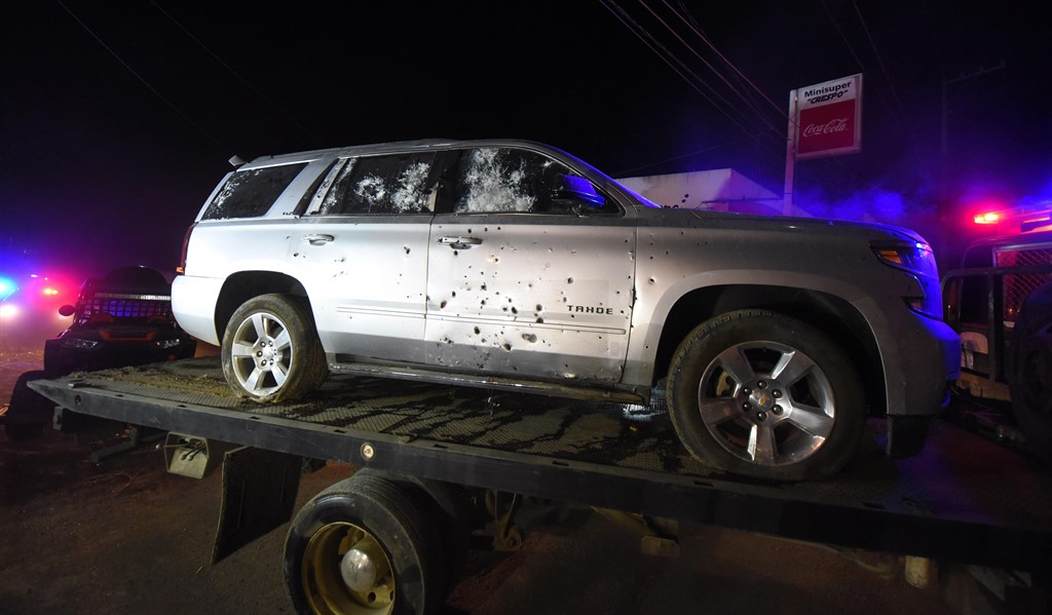Mexican President Andrés Manuel López Obrador's "hugs not bullets" strategy of dealing with the numerous drug cartels operating within the country's borders has been a disaster, both in Mexico itself and here in the United States. While Obrador and his government are suing many U.S. gun makers, blaming them for the thousands of cartel-involved killings south of our border, his hands-off approach to combatting the cartels has not only helped to fuel the violence, but has led to the rise of citizen self-defense groups in several Mexican states, where villagers armed with everything from revolvers to illegally-possessed semi-automatic rifles are guarding their families and fighting back when the cartels come to town.
In the absence of any real leadership on the part of Obrador, a group of four Catholic bishops recently had a sit-down with cartel leaders in hopes of reaching some kind of peace accord; a bizarre undertaking that has the backing of Mexico's president, even as it once again highlights his self-inflicted impotence in fighting the cartel violence.
López Obrador said that while he had no problem with the talks, he wouldn't approve of “any agreement that meant granting impunity, privileges, or licenses to steal.”
That rang hallow to one parish priest whose town in Michoacan has been dominated by one cartel or another for years. “It is an implicit recognition that they (the government) can't provide safe conditions,” said the priest, who cannot be quoted by name for security reasons.
“Undoubtedly, we have to talk to certain people, above all when it comes to people's safety, but that doesn't mean we agree with it,” said the priest. For example, he said, local residents have asked him to ask cartel bosses about the fate of missing relatives.
Many average Mexicans have quietly agreed to pay protection payments to drug cartels for fear of being attacked or having their homes or businesses burned. The church has also suffered — priests have also been killed by the cartels — but some gang leaders talk with church leaders.
The bishop said the most recent talks failed because the cartels and drug gangs didn’t want to stop fighting over territory in the Pacific coast state of Guerrero. Those turf battles have shut down transportation and led to dozens of killings in recent months.
“They asked for a truce, but with conditions,” González Hernández said of the talks, held a few weeks ago. “But these conditions were not agreeable to one of the participants.”
Asked by local reporters what those conditions were, the bishop answered “territories.”
While the unnamed priest quoted by the Associated Press says the failed truce talks reveals the administration "can't" provide safety, I'd say the real issue is that Obrador isn't even trying to do so.
Under López Obrador's “hugs, not bullets” policy, the government has avoided direct confrontation with the cartels, allowing them to essentially take control of a dozen or more mid-sized cities, where the prices of most products are higher because they include a 'tax' charged by the cartels.
And now Obrador wants U.S. gun makers to cough up $10 billion for supposedly fueling the cartel violence that his own administration refuses to confront directly. The First Circuit Court of Appeals recently overturned a lower court decision tossing out the lawsuit and ruled that the Mexican government's litigation, which is spearheaded by former Brady attorney Jonathan Lowy, can continue despite the Protection of Lawful Commerce in Arms Act. The Mexican government is hoping for a financial windfall from the lawsuit, while American gun control activists are salivating over the prospect of onerous new restrictions placed on gun companies by the federal judiciary.
With Obrador seeking to hold the firearms industry financially responsible for cartel violence, he's incentivized to do nothing to try and quell that violence himself. His "hugs not bullets" approach predates the government's lawsuit against American gun companies, but with the litigation underway it's very much in the best interest of both anti-gunners and his administration to essentially be passive partners in the cartels' continued subjugation of Mexican citizens. Obrador has ten billion reasons not to take the fight to the cartels even he was inclined to do so out of personal conviction or political expediency, and his refusal to crack down on the cartels that are now the de facto government in some parts of the country is all the more reason why the country's lawsuit against U.S. gun makers should be tossed out of court once again by U.S. District Judge Dennis Saylor now that the First Circuit has kicked the case back down to his courtroom. Maybe once the prospect of a $10 billion verdict is off the table Obrador or his successor will finally get serious about eradicating the cartels and the misery they're inflicting in Mexico and the United States.








Join the conversation as a VIP Member